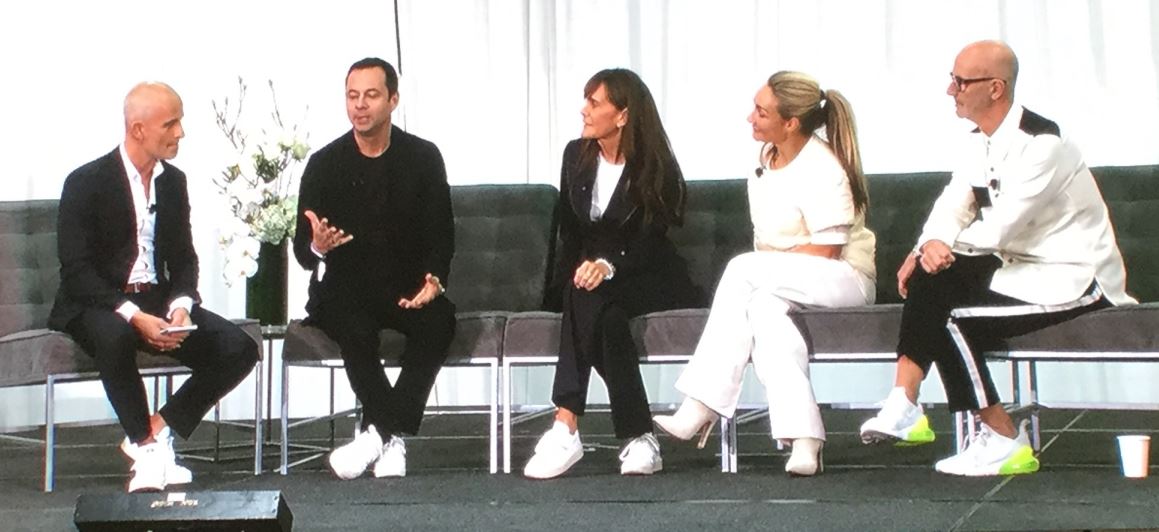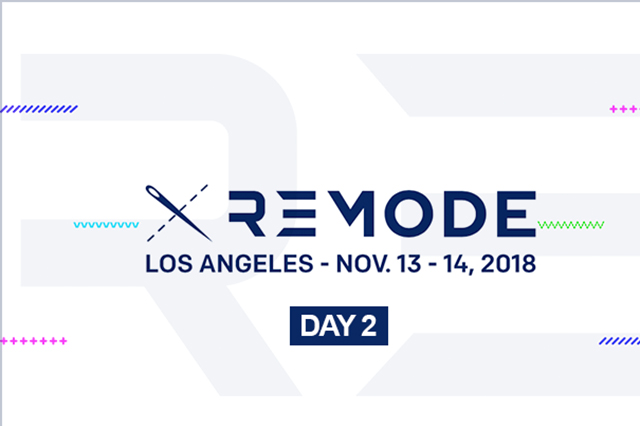The Coresight Research team attended the inaugural ReMode two-day conference in Los Angeles, November 13 and 14. ReMode is focused on disruption and sustainability in the fashion industry, helping the industry navigate the new realities across the value chain via its four foundational pillars: ReThink, ReMake, ReInvest and ReMarket. More than 150 speakers, 80 innovative solution providers and more than 1,000 attendees came together to help build the future of the fashion industry.
Luxury’s Evolving Role in Sustainability
A number of luxury executives and consultants participated in ReMode to discuss the evolving role of the luxury industry in sustainability. It is natural the luxury sector leads and inspires the fashion industry in sustainability: Consumers pay more for and expect more from luxury products, and it is where sustainability should thrive, according to Eva Kruse, President and CEO of Global Fashion Agenda.
Sustainability has been integral to Kering’s business strategy for the past decade. Kering has 13 luxury houses of fashion, leather goods, jewelry and watches, including Gucci, Saint Laurent, Bottega Veneta and Balenciaga. Laurent Claquin, Head of Kering America, said “Kering regards sustainability as an opportunity, and a source of inspiration and innovation.” Kering is changing the way it designs luxury products by including nonfinancial criteria to create sustainable value for customers and society via its environmental profit and loss (EP&L) methodology. And in the spirit of collaboration, Kering has open sourced its EP&L methodology to catalyze others. “Sustainable business practices allow us to be here together for the future,” Claquin commented.
 Morten Lehmann, Global Fashion Agenda; Laurent Claquin, Kering Americas; Julie Gilhart, Parsons School of Design; Eva Kruse, Global Fashion Agenda; Simon Lock, Ordre
Source: Coresight Research
Morten Lehmann, Global Fashion Agenda; Laurent Claquin, Kering Americas; Julie Gilhart, Parsons School of Design; Eva Kruse, Global Fashion Agenda; Simon Lock, Ordre
Source: Coresight Research
Simon Lock, Cofounder and CEO at Ordre, listed a number of ways the luxury fashion sector has and can become more mindful of its impact on the globe: using virtual online showrooms which reduces travel and lowers the carbon footprint of the industry; in colleges, new generations of designers are being taught to design in a more sustainable way; and blockchain has the potential to form a transparent record and database of a product’s journey, from raw materials to retail, allowing for a more qualified and informed purchase decision.
Julie Gilhart, a member of the Parsons School of Design Board of Governors, said, “Luxury has an obligation to lead the way with sustainability. We are setting trends in fashion, rooted in artisanry and quality, we should set this trend as well.” Claquin concurred, “(Sustainability) is a necessity and, for luxury, a duty, a double duty,” citing Gucci’s Equilibrium, Claquin said Kering has a culture of purpose balancing aesthetics and ethics, and that the brand and its people are committed agents of social and environmental change.
Recommerce Circularity
The RealReal has a solution to fashion’s built in obsolescence: Consign it for the next fashionista. One of the largest luxury consignment startups, The RealReal, is a retail choice that helps the planet by reducing the waste and environmental impact of the fashion industry. It is built on authenticating luxury products and eliminating the risk of counterfeit goods. Rati Levesque, Chief Merchant at The RealReal, said the company has sold over 8 million items since its 2011 launch.
The RealReal has multiple virtues, in addition to fostering a more sustainable industry, the company acts as an acquisition channel for many luxury brands providing entry to first-time value focused millennial buyers. Buyers and sellers are getting maximum value out of luxury goods. Even the luxury brands have taken notice and are beginning to work with The RealReal. Levesque mentioned a partnership with designer Stella McCartney to make a shared impact and advance their shared values; consignors at The RealReal earn a Stella McCartney gift card when they consign a Stella McCartney product. Together, they are extending the lifecycle of luxury items. Levesque said The RealReal will extend this type of partnership to additional luxury brands.
Levesque also spoke to the value of growing data at The RealReal, with insights into current macro and micro trends, by brand, region and age group. The company publishes an annual State of Luxury Resale Report replete with this best-selling brands and emerging designers in luxury resale. Gucci was in first place in terms of sales growth in the first half of 2018, in the August 2018 report, achieving 62% growth in women’s.
Customer Centricity
Greg Petro, Founder & CEO of First Insight spoke to using technology to build a customer-centric organization. Two areas in which retail executives are underestimating the impact of consumer behavior is smart speakers and product pricing. According to First Insight’s consumer and retail executive surveys, only 2% of retail executives acknowledge the impact of smart speakers, despite a 75% increase in the number of consumers who own smart speakers since December 2017, and that 59% of consumers with smart speakers are using them to research prices.
Regarding pricing, First Insight data reveal that 40% of consumers rank price as the most important factor in their purchase decisions, but only 20% of retail CEOs felt pricing was ranked as important.
Voice of the Customer analytics (VoC) was cited by 59% of executives as the most transformative technology for their business and 46% of retail leaders plan to invest in VoC in the next 12 months. That compares with 49% of executives that named predictive analytics as most transformative and 63% planning to invest in predictive analytics in the coming 12 months.

 Morten Lehmann, Global Fashion Agenda; Laurent Claquin, Kering Americas; Julie Gilhart, Parsons School of Design; Eva Kruse, Global Fashion Agenda; Simon Lock, Ordre
Source: Coresight Research
Morten Lehmann, Global Fashion Agenda; Laurent Claquin, Kering Americas; Julie Gilhart, Parsons School of Design; Eva Kruse, Global Fashion Agenda; Simon Lock, Ordre
Source: Coresight Research